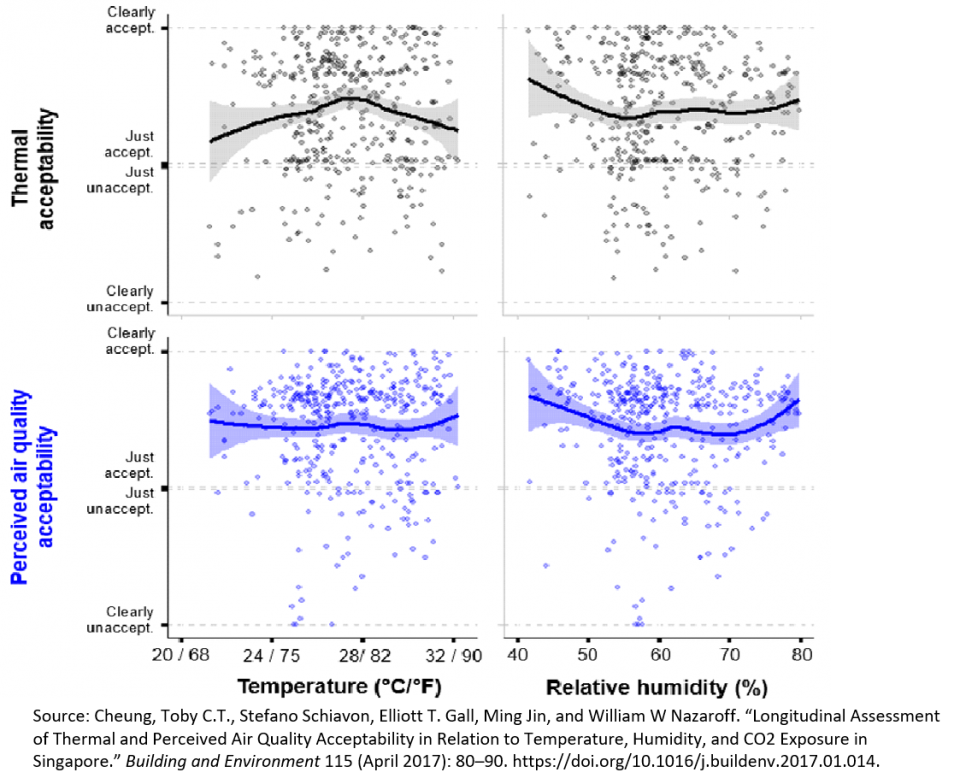Learning-Based Thermal Comfort Modeling
This project validates and extends both the Predicted Mean Vote (PMV) and the adaptive models through white-box modeling between in-situ and crowdsourcing measurements, and the list of personal and environmental parameters. It employs deep-learning techniques to develop a black-box thermal comfort model, capturing the physiological and psychological semantics, to model human thermal comfort, health and satisfactions in the tropics. It conducts in-field testing of adaptive behaviors in actions that help the subjects to become comfortable in the prevailing conditions, and actions that adapt the environment to the subject.
For the former, this project explores various incentive schemes and develop a mathematical model to characterize the economic value of thermal comfort to the building occupants. This economic model for comfort will play a crucial role in guiding the design of new incentive schemes in the built environment, as it provides quantitative measurement of comfort value to building occupants. For the latter, the project aims to develop a stochastic model between occupant behavior and energy use in the buildings, thus providing actionable guidelines for facility managers to operate “greener, smarter and healthier” buildings.
